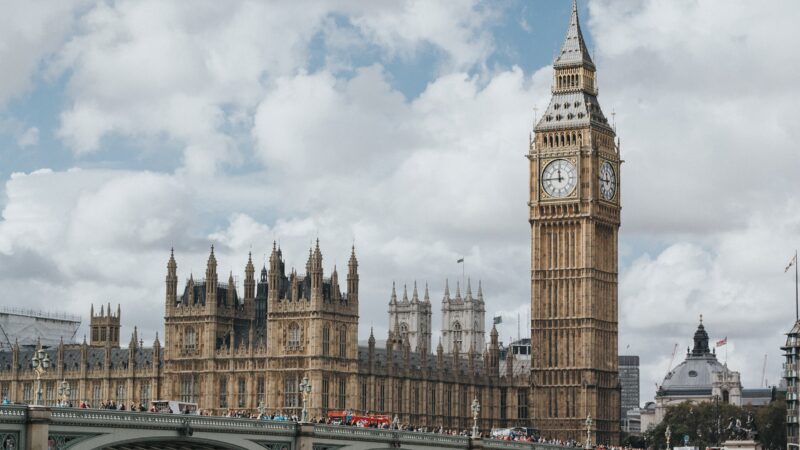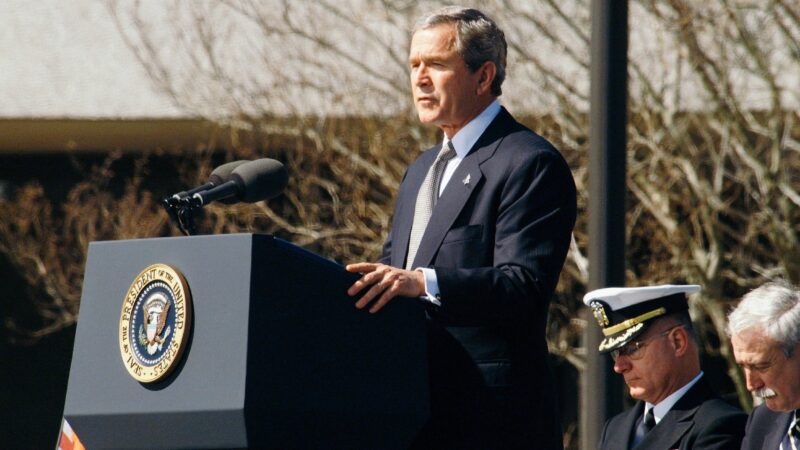Squandering a Revolution
Ignore the snarky joylessness of self-important losers and the performative perplexing of Very Serious Political Commentators, the past few days have been hilarious. Brought down by inadvertent kamikaze molester “Pincher by name, Pincher by nature” Chris Pincher, appointed to be (you couldn’t write this) a party whip, amounts to more than another Gay Tory Predator scandal. Instead, we are finally witnessing the end of Johnson’s inert and wasteful premiership.
Here I was thinking we’d be dealt an anti-climactic resignation over a piddly piss-up. All those times half-wit pundits, with their mundane alcoholism, lapsed anuses and hyperlinked relatives on Wikipedia, insisted that “it’s over” for Boris, only for such prospects to be dashed when a big fat *nothing happens*, effectively wore down the belief that Johnson could be removed at all.
However, just as a monkey could write Shakespeare if given enough attempts, journalists occasionally conjure the ability to publish something with a kernel of veracity, in this case – the government is imploding because Johnson feigned ignorance of Pincher’s pinching.
As funny as it is to see Boris’ top guys do a 180 in less than 24 hours, contrasted to the inexhaustible ride-or-die energy of Nadine Dorries, you came here for Insightful Political Commentary; a lucid outline of What is To Be Done, you came here for The Ideas. Very well, ladies and gentlemen. After all, chaos is a ladder.
Like most conservatives, I am torn between my hatred of Johnson and my hatred of full-time Johnson-haters. The former was handed an unconstrained sledgehammer to smash the Blairite machine. Criminally underutilised, it was primarily used for tasks completely incongruent with the telos of a sledgehammer – Building Back Better, Levelling Up, etc.
Adding insult to injury, the constructivist rhetoric was entirely devoid of actual construction. Housing prices continue to climb, the borders are wide open, the tax burden continues to punish the most productive, supply-side solutions to energy problems are practically non-existent, and all ‘attempts’ at resolving [REDACTED] have mounted to nothing more than superficial lip service to whip up momentary support from disaffected voters. For a man versed in the classics, Boris should know Heraclitus’ First Cause – Construction and Destruction were born joined at the hip, the fire which festers within a blacksmith’s forge and the fire which springs from a Molotov cocktail are the same force.
In the case of the latter, the full-timers sincerely believe that Boris has made extensive use of his loaned hardware, obliterating Those Ancient British Traditions: the NHS (1946), the HRA (1998), Supreme Court (2005), Britain’s membership of the EU (1992), etc. Ironically, had Johnson aspired (never mind achieved) more than a measly fraction of the aforementioned, he would be leading by double-digits.
The derangement of these full-timers makes one wish Johnson had made like Caesar and crossed the Rubicon. If not to pursue a revolutionary agenda, then to amplify the deserved misery of Britain’s worst inhabitants; the type of people that Tumblr-format tweets about having integrity in politics – “The Parties, The Lies, The Cheese and Wine, it’s DISGUSTING” – as they listen intently to the most recent episode of Alastair Campbell’s podcast.
It’s old news, but it’s worth remembering that Boris is not a conservative. He’s a liberal whose self-obsession disrupted what would have been his natural Brexit alignment. He’s managed to court support from people who would otherwise not have supported him, knowing full well they have little realistic alternative. A socially liberal chieftain of a socially conservative tribe, a Globalist commander of a nationalist army, Boris’ betrayal of both sides of Britain’s politico-cultural schism are finally converging, depriving him of what he values the most: popularity. Like Louis XVI awkwardly donning the revolutionary bonnet, Johnson found himself divided between his political inclinations, those of his new compatriots, and his desire to remain popular irrespective of circumstance.
A high-tax, high-immigration, high time-preference, low-wage, low-cohesion, low-growth Britain with a political life routinely interspersed by the misdeeds of a Prime Minister that backstabs his own supporters and elevates pillow-talk policy over national priorities. Brexit was always more than technical independence from the EU. Sovereignty was never the ultimate end. The Leave coalition was underpinned by the pursuit of sovereignty, but it was the prospect of exercising this sovereignty that brought about the electoral realignment. It was why the Nationalist-Brexiteer majority and the Globalist-Brexiteer minority could co-operate. Not a means to an end, but a means to greater means, and from these greater means a true ultimate end. A half-baked means (see: ECHR), but a necessary means, nonetheless. Even without Brexit, to waste such a supermajority, as a Conservative, should be grounds for life imprisonment.
In case you haven’t noticed, I am not outraged at “THE LIES”. Expecting politics to be free of lies, noble or otherwise, is like expecting the sea to be free of fish. It’s that a national revolution, literally decades in the making, has been squandered by a fat, self-absorbed, Etonian mutt that cares more about getting cummies from mid women and supporting The Current Thing like the insufferable libtard he is, rather than using a historic opportunity to liberate his country from institutionally inflicted self-harm; a stranglehold that will certainly be reinforced under a Labour government.
Speaking of Labour, how is the mortician doing? Has he recovered from his divorce yet? If the polls are to be believed, he’s doing better than a country with half-serious political system would allow. I do not believe mass reconversions to Labour will occur. The next election will be decided by the magnitude of [c]onservative disaffection.
And what of future Conservative leadership? Oh joy, a choice between Loony Liz and Total War Tom; an accidental hot war with Russia vs an intentional hot war with Russia. Decisions, decisions. Then again, what do you expect when given the option between an ex-Liberal Democrat and a dual-citizen neocon? It all screams “Look at me, I’m a rat that will jump wherever!”.
Rishi? The ‘Diversity Built Britain’ guy? Okay sure, he didn’t run cover for Pincher but he’s still a dull gremlin with a non-dom wife – not a good look! Besides, he’s still “implicated” by “Partygate” – an even worse look! Hunt deserves more contempt than can be articulated by the human tongue. Javid is an NHS fundamentalist. Not only does he worship the NHS, but he also unnecessarily attacks people on Twitter that dare to criticise it. Braverman is a Judas Goat – either she puts up or shuts up. Does anybody have an opinion of either Gove or Zahawi that isn’t associated with unnecessary underhandedness?
Mordaunt will be Theresa May 2.0 – the untainted candidate that slides in from the side-lines, garnering popularity from the prospect of some maternal reconciliation. Indeed, thoroughly disgusting prospect. This country can’t endure five seconds of political excitement without wailing like an infant. Speaking of Theresa May, she’s rumoured to be a potential “caretaker Prime Minister”. Does nobody remember her premiership? She embodies this country’s infuriating sentimentalism towards mediocre politicians. Furthermore, the timeline will be unbearable. Every sycophantic bint with a “Bloody Difficult Woman” tote bag from 2017 will re-emerge, squawking about the totally-not-astroturfed-and-definitely-politically-attractive notion of Compassionate Conservatism.
For all his faults, at least Boris had some charisma. One suspects people were banking on 2019 to make Parliament a little less boring, replenish it with at least a few interesting people. But no, we got potato sacks.
It is easy to imagine that Johnson will become a Girardian scapegoat for the coming Parliament – an environment defined by his ostracization and anything that can be construed to be representative of his presence (very easy for a man with the track record of an erratic ape). Onto him, all the ‘sins’ of the past 3 years will be unanimously piled; his resignation will represent an exorcism that alleviates whatever is political convenient for his ex-compatriots and the neurotic full-timers. An insulated circlejerk which will barely disguise an aggressive repositioning against the progressively minded – “if Johnson’s premiership was the result of Brexit, then nothing like Brexit can happen again”, and so on.
In the end, whatever maximises political randomness may best serve the betrayed. January 6th kino isn’t coming to Britain (we’re far too boring for something like that), but there’s certainly no reason to support the Conservatives at the next election. At this point, democratising the Conservative Party should be on the table. We cannot carry on with a system which consistently produces such terrible representatives – ones which can so easily abuse (literally and figuratively) the party’s support base and continuously get away with it.
Brace for the self-righteous gush that will begin to flow courtesy of Johnson’s neuron-cranking retardation. The BBC will find another reason to put Ian Hislop on the television and use “Should I Stay or Should I Go” in whatever slapdash documentary comes out of this. Unfunny comedians will tune into radio shows to compare Johnson to their ex-boyfriends. “The 2022 UK Government Crisis Shows the Enduring Problem of White Male Fragility. Discuss.” (40 marks).
Enoch Powell said that “all political careers end in failure”. On a technical level this is true, but few political careers end with the squandering of a revolution. The boy who wanted to be king was gifted the crown on a velvet cushion and, when placing the crown onto his head, dropped it into the gutter. Here’s hoping the crown can be retrieved by someone of kingly calibre and salvage the future that could have been.














Neoconservatism: Mugged by Reality (Part 2)
The Neoconservative Apex: 9/11 and The War on Terror
11th September 2001 was a watershed moment in American history. The destruction of the World Trade Centre by Muslim terrorists, the deaths of thousands of innocent American citizens and the general feeling of chaos and vulnerability was enough to turn even the cuddliest of liberals into bloodthirsty war hawks. People were upset, confused and above all angry and wanted someone to pay for all the destruction and death. To paraphrase Chairman Mao, everything under the heavens was in chaos, for the neoconservatives the situation was excellent.
After 9/11, President Bush threw out the positions on foreign policy that he’d advocated for during his candidacy and became a strong advocate of using US military strength to go after its enemies. The ‘Bush Doctrine’ became the staple of US foreign policy during Bush’s time in office and the magnum opus of the neoconservative deep state. The doctrine stated that the United States was entangled in a global war of ideas between Western values on the one hand, and extremism seeking to destroy them on the other. The doctrine turned US foreign policy into a black and white war of ideology where the United States would show leadership in the world by actively seeking out the enemies of the West and also change those countries into becoming like the West. Bush stated in his 2002 State of the Union speech:
“I will not wait on events, while dangers gather. I will not stand by, as peril draws closer and closer. The United States of America will not permit the world’s most dangerous regimes to threaten us with the world’s most destructive weapons.”
The ‘Bush Doctrine’ was a pure expression of neoconservatism. But the most crucial part of his speech was when he gave a name to the new war the American state had begun to wage:
“Our war on terror is well begun, but it is only begun. This campaign may not be finished on our watch – yet it must be, and it will be waged on our watch.”
The ‘War on Terror’ became a term that would become synonymous with the Bush years and indeed neoconservatism. For neoconservatives, the attack on 9/11 reaffirmed their pessimism about the world being hostile to the United States and, in turn, their views on needing to eradicate it with ruthless calculation and force. A new doctrine, a new President, a new war – neoconservatism certainly held itself up to its ‘neo’ nature. With all this set-in place and the neoconservative deep state rearing to go, they could finally start to do what they had always wanted to do – wage war.
Iraq and Afghanistan became the main targets, with Al Qaeda, Saddam Hussein and the Taliban becoming public enemy’s number one, two and three. A succession of invasions into both countries, supported by the British military, ended up with the West looking victorious. Both the Taliban and Saddam Hussein had been removed from power, Al Qaeda was on the run, and various of their top leaders had been captured or killed. It was ‘mission accomplished’ and thus time to remould Afghanistan and Iraq into American-aligned liberal democracies. Furthermore, the new neoconservative elite saw to demoralise and outright destroy all those who had been associated with the Hussein regime and Islamic radical groups and thus began a campaign of hunting down, imprisoning and ‘interrogating’ all those involved. However, this is where the neoconservative project would begin to fall as quickly as it had ascended.
The Failure and Eventual Fall of Neoconservatism
A core factor to note is that the neoconservative belief that one could simply invade non-democratic and often heavily religious countries and flip them into liberal democracies proved to be highly utopian. As Professor Ian Shapiro pointed out in his Yale lecture on the Demise of Neoconservatism Dream, the neoconservative’s falsely believed that destroying a country’s military was equivalent to pacifying and ruling a country. The American-British coalition may have swiftly destroyed the armies of Hussein of Iraq and cleared out the Taliban in Afghanistan but they did not effectively destroy the support both had amongst the general population. If anything, the removal of both created an array of intense power vacuums which the neoconservatives could only seem to fill with corrupt American aligned Middle Eastern politicians as well as gun-ho Generals and neoconservative elites who knew very little about the countries they were presiding over.
One such example is Paul Bremer who led the Coalition Provisional Authority (CPA) in Iraq after the Hussein regime was overthrown. His genius idea – that totally would get the Iraqi people on the side of freedom and democracy – was to disband the army and eradicate the Iraqi civil service and governmental authorities of those who were aligned with Hussein’s Ba’ath Party; terming it De-Ba’athification. Both led to a plethora of Iraqi’s losing their jobs and incomes and being smeared as enemies of the new American led regime – even low level teachers and privates were removed despite the fact that many of them joined the party simply to keep their own jobs.
While seen as a tactical way in which to remove any potential opposition to the CPA, the move created more opposition to the new government than any dissident anti-American group could have wished to have created – turns out making 400,000 young men, who know how to kill a man in sixteen different ways, unemployed isn’t the best way in which to show your care for the Iraqi people. It also didn’t help that Bremer and the CPA failed to account for a variety of funds and financial given to him for the reconstruction of Iraq, leading to a variety of financial blackholes and millions of dollars that simply disappeared.
Insurgent groups grew and assassination attempts on Bremer became commonplace to such an extent that even Osama Bin Laden himself placed a sizable bounty on Bremer’s head. Opposition to Bremer was so fervent that he was essentially forced to leave his position in the CPA by mid-2004 with his legacy being one of failure, instability and corruption, a legacy which the Former Speaker of the House Newt Gingrich called “the largest single disaster in American foreign policy in modern times”.
Removing opposition instead of attempting to work with it and use their expertise is something the US has done before, especially after WW2 with the fall of the Axis regimes, but the neoconservative mind has no tolerance or time for those who oppose American values – leading to brutal methods being used against those who do not comply.
It was under the neoconservatives that Guantanamo Bay was opened, a prison known for its mistreatment of prisoners and dubious torture methods. It was under the neoconservatives that Abu Ghraib prison, a feared prison under Hussein’s regime, became a place in which American soldiers and state officials were allowed treat and use interrogation methods on prisoners in manners that violate basic human dignity. And it was under the neoconservatives that began a mass surveillance state in their own country via the so-called ‘Patriot Act’ which put the privacy of American citizens in great danger. The Bush administration claimed that these abuses of human rights were not indicative of US policy, they were and the neoconservatives were the one’s responsible.
Luckily, these abuses were quickly all over mainstream news both inside and outside the US and horrified the population at large, even those who had once been pro the War on Terror. Furthermore, soldiers who had fought abroad came back with horror stories of their fellow soldiers abusing prison inmates and how they’d left Iraq bombed to the ground, displacing families and with casualty rates of up to and around 600,000 Iraqi civilians. The American mood turned against the war and by the end of Bush’s tenure in office 64% of Americans felt that the Iraq war had not been worth fighting.
The average American who felt angry and upset at their freedoms being threatened by Islamic terrorism became just as angry and upset when they saw their own country committing atrocities and taking away the freedoms of others. While it may seem cliche to point out the hypocrisy, this was one of the first times American’s had been exposed to the reality of what their state was really capable of. As Shapiro elucidates, the real legacy of the Iraq war and the War on Terror is that it destroyed America’s moral high ground. A high ground America has never been able to reach to since.
Barrack Obama and the Democrats attacked the Republicans and their neoconservative wing for their human rights abuses, the unjustified invasion of Iraq and implosion of America’s moral standing on the international stage. It is not unfair to say that Obama’s intoxicating charm and message of hope for America was desperately wanted in a post-Bush era in order so that Americans could try and forget the depravities that their country had fallen to in the early 2000s. He promised to pull out of Iraq, close Guantanamo Bay and replace the neoconservative doctrine for one based on diplomacy and moderation.
Bush and the majority of his neoconservatives left office after the election of Obama – in which he beat the then darling of the neoconservative right John McCain – and have since failed to re-enter the halls of power or indeed even their own party. The Tea Party movement supplanted neoconservatism dominance over the Republican Party and those still clinging on for dear life are being cleared out by the new America First aligned Republicans who wish to supplant the war-hawks and globalists with non-interventionists and nationalists.
Conclusions
It is not radical nor unfair to say that not since the fall of the Berlin Wall has an ideological group lost its grip on power so completely as the neoconservatives have.
With the failure of nation-building in Iraq and Afghanistan, the grotesque violation of individual liberties at home and the deaths of hundreds of thousands of people, neoconservatism, and indeed even the US government, became synonymous with warmongering, authoritarianism and out and out international crime. To quote Stephen Eric Bronner in his book Blood in the Sand:
“Like a spoiled child, unconcerned with what anyone else thinks, the United States has gotten into the habit of invading a nation, trashing it, and then leaving without cleaning up the mess.”
Neoconservatives like to hand-wring about the ‘evils’ of Middle Eastern dictators while they allow dogs to tear off the limbs of prisoners in Guantanamo Bay, spy on innocent American citizens and bomb Afghani schools full of children into oblivion. Thanks to the neoconservative project of the early to mid-2000s – elements of which still are in place today – the United States became a leviathan monstrosity of surveillance, torture, corruption and warmongering.
It is interesting to see that after being the “cause célèbre of international politics”, neoconservatives are now the frequent targets of ridicule and scorn. And deservedly so, especially considering what neoconservatism has devolved into. The Straussian and genuinely conservative elements of the political philosophy have been ripped out, replaced with vague appeals to liberal humanitarianism and cucking for globalist organisations like the UN and NATO. The caricature of neoconservatives wanting drag queens to be able to use gender-neutral bathrooms at McDonalds in Kabul has shown to be somewhat accurate. After all, neoconservatives exist to promote ‘Western values’ in foreign countries, so naturally what they will end up promoting is the current cultural orthodoxy of progressive leftism, intersectionality and social decadence. An orthodoxy I’m sure Middle Easterners are desperately clamouring for.
However, despite their dwindling ranks and watering down of the ideology, the essence of neoconservative foreign policy remains intact; they still think the world should look like the United States. Therefore, it is unsurprising to see neoconservatives calling for every country in the world to be a liberal democracy along with the American model, or for Western troops to stay in Afghanistan indefinitely. Not only are these convictions still deeply held but are a direct expression of wanting American global hegemony to persist. On a deeper level, the recent pearl-clutching and whining from neoconservatives about the whole ordeal is simply a reflection of the anxiety that they now hold. Their ideas about what the world should look like have come collapsing before their eyes. And they can’t bear to face the fact that they were wrong.
This collapse has been occurring for some time and hopefully with the withdrawal of troops from Afghanistan, and the recent moves amongst elements of the right and left to adopt a more non-interventionist approach to foreign policy, the collapse of neoconservatism will remain permanent. After all, the neoconservatives who backed President Joe Biden – thinking he would spell a revival in their views – have now had an egg thrown in their face. Biden has proven himself to not be aligned with neoconservative foreign policy views.
Despite his claims that ‘America was back’ and his past support of foreign interventionism, it is evident that Biden has no real ideological attachment to staying in Afghanistan. In turn, he seems to have found it relatively easy to pull out and then spout rhetoric that wouldn’t be uncommon to hear at a Ron Paul rally. He stood against nation-building, turning Afghanistan into a unified centralised democracy and rejected endless military deployments and wars as the main tool of US foreign policy. Biden, alongside President Donald Trump, has turned the tide of US foreign policy away from military interventionism and back towards diplomacy. A surprise to be sure, but a welcome one.
However, while the ‘War on Terror’ may firmly be at an end – the American state has worryingly turned its eyes towards a new ‘War on Domestic Terror’. A war that political scientist and terrorism expert Max Abrahams worries will be catastrophic for the United States, quoting Abrahams:
“The War on Terror destabilized regions abroad. It’ll destabilise our country all the same… We cannot crack down on people just because we don’t like their ideology…otherwise the government is going to turn into the thought police and that is going to spawn the next generation of terrorists.”
The neoconservatives may have lost the war on terror but the structures and policies they put in place to fight that war are now being used, and being used more effectively, against so-called ‘domestic terrorists’. The American regime’s tremble in the lip is so great that it now believes the real threat to its existence lies at home. While this ‘War on Domestic Terror’ is still in its early stages, it is clear that the neoconservative deep state’s toys of torture, mass surveillance and war are now being put to other uses. Only time will tell if it will have the same consequences in America as it did in the countries it once occupied.
.
With the withdrawal of troops from Afghanistan and Iraq; the continued rise of anti-interventionism on the right and left; and the memory of the failure of conflicts in the Middle East fresh in people’s memories, neoconservatism has been all but relegated to the ideological graveyard – its body left rot under the cold soil for eternity. A fitting fate.
“A neoconservative is a liberal who has been mugged by reality” proclaimed the godfather of the ideology. But in the perusal of utopian imperial ambitions it has now suffered the same fate – neoconservatism has been mugged by reality. A reality it so desperately and violently tried to bring to heel.
Photo Credit.